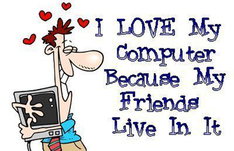 photo: looksharp.com photo: looksharp.com I recently spent a day at our biggest annual publishing conference in Scotland, contemplating the power of words. The industry is so far surviving the tech innovations that threaten to shut it down, at least on paper. We hear that the average writer now earns £11,000 per year – and many more less than that. Without the people to write the words, there are no books, no publishers, and no booksellers required. It’s a terrifying thought. The UK’s average literacy rate is already shockingly low, a figure that doesn’t look to be improving with library closures across the country and digital publishing becoming the norm. Publishing in the traditional sense celebrates words and the joy of reading them. I have to wonder, does digital publishing really do the same? I was appalled to hear a statistic which suggested the average 8-10 year old has an attention span of 8 seconds. Challenging enough for a digital publisher, but for a traditional publisher or indeed a parent, it’s a monumental task to encourage kids to read physical books. It got me thinking – what is all this overloading on quickly-consumed content via a digital device actually doing to us?  Photo by www.aoa.org Photo by www.aoa.org I’m of the ‘adapting’ generation – computers weren’t in every home until I was a young teenager, I didn’t own a mobile phone until I was 16, emails were a way of contacting those friends who lived far away. The landline telephone was the normal mode of communication. However I was young enough to just roll with it as technology became part of everyday living. Now; I increasingly struggle with the daily surge of emails not to mention the stream of texts and demands from social media platforms through every device. We are all communicating a lot more and that’s great – but when is it too much? There has to be a limit to what the brain can handle – or rather, what it should handle. Rather than learning more from all this accessible content, I feel more muddled and drained. Schools are teaching primary kids from an early age how to work all these devices, how to create animations – all sorts of fun stuff, but these kids are also being kept indoors more and more with tech and gadgets becoming the normal way of filling time (whether we like it or not). Does social media really make us social? Are we not tunnel-visioning; day in, day out? The concern here is largely the content. The words that fill the screens of social media are highly curated and not always in a good way. Sitting behind a screen with the keys at your fingers isn’t really communication in its most earnest form – for one thing when I communicate with someone, I’m reading their expression, tone of voice and body language. Social Media is devoid of all this (yes even after Facebook has opted to include dislike, sad, angry etc. in its responses – what a scope!) Contact, it seems, is the new communication. I mentioned in an earlier post how people have the ability to present only a facet of themselves on social media – not necessarily a fabrication; but they have the easy option to be selective. How do kids possibly learn social skills from that? How do they handle that when they are eventually thrust into a social environment where all is revealed – will they know then how to behave? Indeed, the freedom of anonymity, at least by way of excluding direct person to person contact, seems toxic.  This sense of removal from the self when using digital devices is well known and already apparent in my own generation – and we grew up without social media. Trolling is so prolific now it’s a technological epidemic. People seem to think less about the consequences of their actions when they are acting through a screen. This has been filtering slowly into day-to-day living as digital media becomes an ever increasing part of working and personal life. (Just a couple of years ago I had some experience of this; as I unwittingly discovered that a respected colleague had been emailing friends with cruel comments about me, from her desk). It begs the question of the long-term effect of working with digital technology on a daily basis – and the false sense of detachment it instils. Office bitching is to a degree, part of working life, but are people now feeling falsely secure with unacceptable behaviour because it’s happening online? Easy access to social media and personal email provides a bit of a conundrum: it’s great for marketing purposes, building audiences and quick contact – but less so for the depth of interaction between the people using it. Considering the world is built on words, I think we are in danger of losing sight of their impact and importance - and the crucial way we deliver them.
1 Comment
|
More posts coming soon...
Archives
January 2017
Categories |
 RSS Feed
RSS Feed